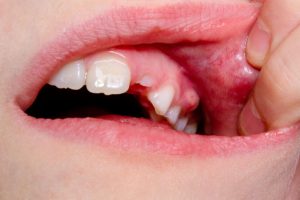Content Attributes
Despite the fact that the legal drinking age is 21 in most states, the simple truth is that kids and teens are routinely being introduced to alcohol much earlier than that. Some estimates suggest that as many as 62% of tenth graders are already imbibing regularly. This is barely a surprising statistic, but it still comes as quite a shock when suddenly your binge drinking teen is displaying early warning signs of dependency and alcoholism. Binge drinking defined as a pattern of drinking that brings a person’s blood alcohol concentration (BAC) to 0.08 g/dl or above. This commonly occurs when men consume 5 or more alcoholic drinks or when women consume 4 or more alcoholic drinks in the span of 2 hours.
For many people, when we drink alcohol in moderation we can enjoy it, but tend to know our limit and not to go overboard or consume more than the healthy amounts of one or two alcoholic drinks a day. For some it is not at all palatable and it never really becomes an issue or habit. And For others, from the moment we begin drinking the associated effects can quickly open a pandora’s box of obsession, temptation and an inability to stop once we have started. Binge drinking while technically socially acceptable and even encouraged in some contexts (parties and sporting events etc.) can lead to a myriad of problems and long lasting, life altering issues. When the pattern of teen binge drinking begins to emerge, the likelihood of adult alcoholism greatly increased.
1. Health Risks
The health risks associated with teen binge drinking are vast and many. Injuries, car crashes, alcohol poisoning, fights, sexual assaults, STD’s and suicides are all too frequent short term potential consequences of just one night’s worth of binge drinking. Long term and chronic effects include diseases and issues such as high blood pressure, heart disease, liver disease, various cancers, depression, developmental, memory and learning problems and general alcohol abuse disorders.
2. Social Consequences
Beyond the physical dangers of teen binge drinking, there are costly social and risks involved as well. Judgment is impaired by just one drink and as the binging drinker continues to drink, blackouts become more probable and frequent as tolerance increases. When coming out of a blackout, the binge drinker has little to no recollection of their actions, words or even location in some cases.
It is not uncommon for an individual to inflict irreparable harm on their friendships and relationships both platonic and romantic in the course of a blackout. Some people who are normally kind and thoughtful will get mean, saying and doing hurtful things to people they care about and to make matters worse, won’t remember anything about it. This can be very confusing and lead to shame spirals that lead the individual to drink more, perpetuating a cycle almost certain to hurt and alienate the people in their life.
3. How You Can Help
By communicating with your teen you can greatly help them to understand the risks of binge drinking. Approach this in a non-judgmental fashion. It can hard to not get angry when you worried about your teen. But communication is key and by expressing your concern instead of threatening punishment you keep the lines open for future discussion. Stress that there isn’t anything you can’t talk about even if it’s uncomfortable or awkward. Here a sense of humor and levity can prove instrumental. You want to avoid shaming or embarrassing your teen for making bad decisions and instead talk about what led them to make them in the first place and how they can be avoided in the future and make it known that you are always available.
4. What Parents Can Expect
This won’t be easy. Even in the best of situations where your teen wants and is responsive to receiving help and getting treatment there will be challenges. In most cases there will likely be some degree of deception or lying. Your teen’s first instinct will be to hide their drinking habits when they feel confronted and want to avoid shame and punishment. Not taking this deceit personally and over reacting might be hard, but it is crucial to building trust and respectful communication as you navigate this issue together.
5. There is Hope
You are not alone on this journey. There are many different options such as detox, rehabs and even sober living homes. Reaching out to parents who have experience in this area can help and will be instrumental in getting perspective, guidance and encouragement. There is no specific, one size fits all path to recovery that applies to every teen struggling with alcohol, but there are many known approaches that have been proven to help. Like most hard work this will be a process. Support and hope are readily available to all that need it. All you need to do is ask. You will be surprised.
My Child is Addicted, Now What?
Any parent can attest to the true bewilderment of facing unknown challenges during the journey from childcare into adulthood. It is common knowledge that the decisions and actions during and after your pregnancy bear some mark of influence on the natural development and evolution of your child. Healthy lifestyles, exercise and eating habits during pregnancy are known to positively affect the development of children in utero. We are also acutely aware of the risks and potential consequences of consuming alcohol and drugs while pregnant. Once they are born your children will certainly continue to depend on your love, nurturing and guidance, but the fact remains that certain, sometimes elusive traits are already present in their genetic make-up.
If you find yourself the parent of a teen who is heading down the wrong paths in life, it can seem a baffling and impossible hardship. How someone expected to effectively intervene or positively influence an individual away from these patterns? When your teen was a child, bad behaviour and discipline was a relatively simple matter. With your teen or adult regarding substance abuse, even broaching the subject can be much more complicated. Teen drug abuse is an all too common issue that most parents simply do not possess the skill set to productively address.
The anger, stress, frustration, worry, stigma and shame can produce a wide array of damaging and counterproductive effects. Parents frequently make the mistake of approaching this sensitive and potentially volatile subject from a disciplinary point of view. Although there is a time and place for discipline, when dealing with teens and drug abuse, it can sometimes prove a precarious situation where the benefits of communication can outweigh the efficacy of punishment.
Final Words
Some parents will accept blame that i directed at them by their own children. Others may respond with anger, widening the emotional gap between themselves and their children. Sometimes a parent assumes the financial costs that can plausibly arise in the instances of fines, court costs and other legal fees. This can cause great strain, possibly further damaging the relationship between parent and child. At times a parent will experience feelings of failure and beat themselves up emotionally for their own shortcomings that they attribute to these patterns of behaviour.



